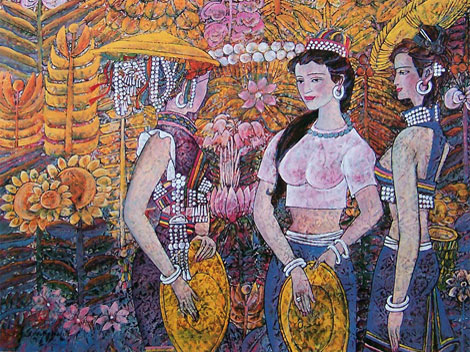
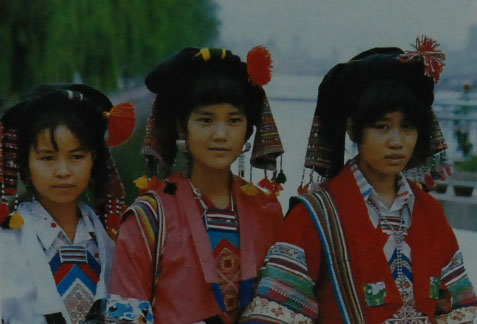
This is a distict diversity of clothing between the Dai women living in Chuxiong
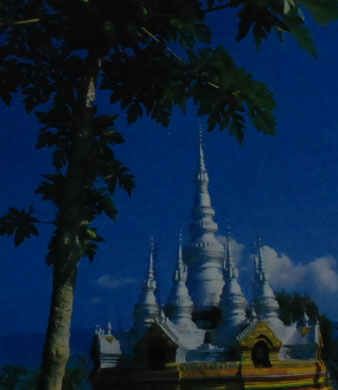
A group of pagodas in Xishuangbenna.
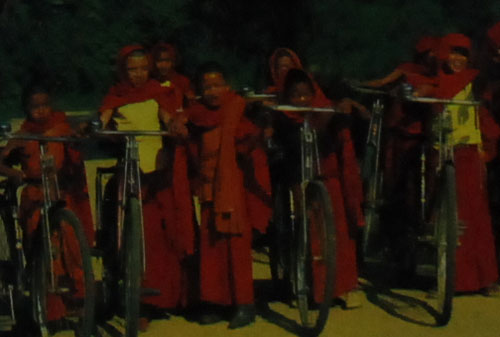
After their daily lessons, little Dai monks are allowed to go to a fair.
The Dai nationality has a population of 1,025,128 living close together in Xishuangbanna Dai Autonomous Prefecture, Dehong Dai - lingpo Autonomous Prefecture and Gengma, Menglian, Yuanjiang and Xinping autonomous counties in the west of Yunnan Province.
The Dai area is located in the west of the Yunnan-Guizhou Plateau with Gaoligong, Nushan and Ailao mountains as its natural defense. The swift currents of Lancang, Nujiang and Yuanjiang riv?ers rush through the deep valleys. On the plateau, there are many endowed small plains, where the Dais makes their homes. The plains are fertile, and yielding an abundance of tropical and subtropical crops and rare medicinal herbs. The Dai's staple is rice. Today, Xishuangbanna and Dehong are praised as the granaries of southern Yunnan.
The Dai people have a long history. Their ancestors were called "Dianyue" in the Han Dynasty, "Pu", "Yue", or "Liao" in the Wei and Jin dynasties, "Jinchi", "Yichi" and "Baiyi" in the Tang and Song dynasties, and "Baiyi" in the Qing Dynasty. After the found?ing of new China, they were named the Dai Nationality according to their own wishes.
The Dai language belongs to the Zhuang-Dai branch of the Zhuang-Dong group of the Sino-Tibetan family. In different areas, four kinds of writing systems including Daili, Dainu, Daibeng and Daiduan are still in use. These written forms came from India alphabet. As shapes of these letters have changed a lot, linguists classify these writing systems as variants of Sanskrit of the Indo- China Peninsula system. Throughout their history, the Dai people kept a record of their culture and history through these letters.
There are 3 branches among the Dai people. They are the Water Dai, Dry Dai and Huayao Dai. Each branch has their traditional attire. The most valuable for research are the Huayao attire in Xinping and the linping attire of the Qing Dynasty.
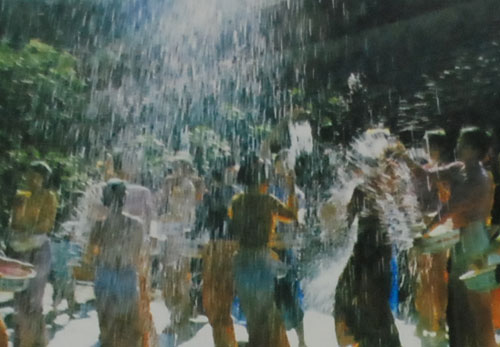
The Water Splashing Festival celebrates the Dais' New Year
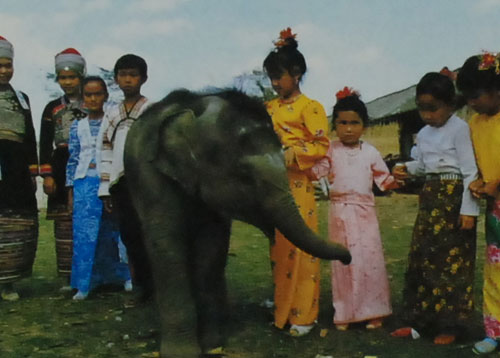
The baby elephant is a pet of these Oai children.
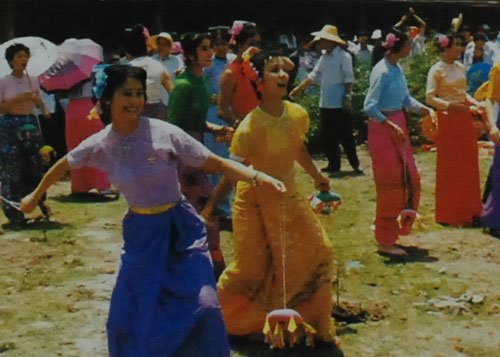
"A cast of ball" is a romantic Dai game among the unmarried youths It may sometimes be the precursor to a union of love.
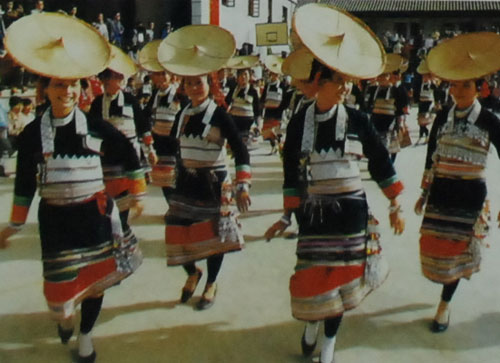
Dai women, living in Chuxiong Prefecture, Yunnan Province, love to wear colorful girdles Honco these people are called the Huayao (colorful girdle) Dais
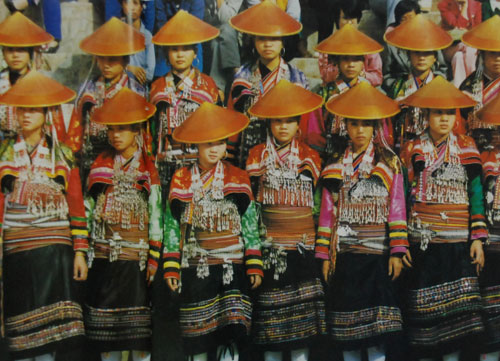
The attire of the Huayao Dais looks gorgeous The jacket made of silk is fullydecorated with silver bolls and tassels
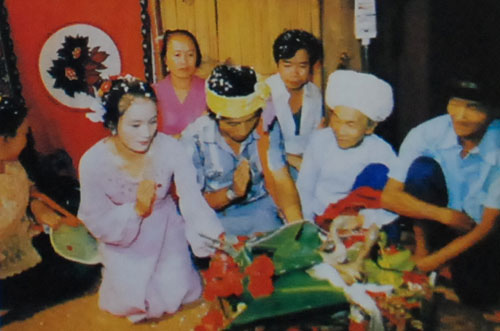
A Dai wadding ceremony





